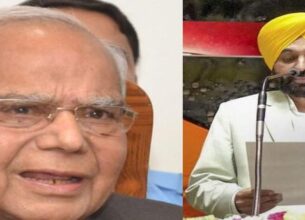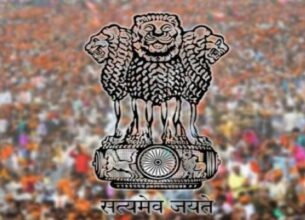Case against T.N. Governor R.N. Ravi not maintainable, rules Madras HC
06, Jan 2023

Prelims level : State Legislature
Mains level : GS-II Parliament and State Legislatures - structure, functioning, conduct of business, powers & privileges and issues arising out of these.
Context:
- The Madras High Court has recently held as not maintainable a writ of quo warranto filed against Tamil Nadu Governor R.N. Ravi questioning the authority under which he is holding the office while simultaneously serving as the Chairman of the Board of Governors of Auroville Foundation in Puducherry.
Constitutional Immunity to President and Governor:
- As per Article 361,
- The President or Governor are not personally answerable to any court for the exercise and performance of their powers, while in office.
- But it does not mean that conduct of these two office holders can not be checked. The Article 361 makes it clear that conduct of the President may be brought under review by any court, tribunal or body appointed or designated by either House of Parliament for the investigation of a charge under article 61.
- No criminal proceedings can be started or continued against the President, or the Governor of a State, in any court during his term of office.
- No court can issue arrest warrants for President as well as Governor.
- Civil proceedings against a Governor or President against things done by him in his personal capacity can be done only with a prior 2 months notice.
Governors of States in India:
- Governor is the nominal head of a state, unlike the Chief Minister who is the real head of a state in India.
- According to an amendment in the Constitution of India (7th Constitutional Amendment Act), brought about in 1956, the same person can be the Governor of two or more states.
Appointment and removal:
- The governors and lieutenant-governors are appointed by the president for a term of 5 years.
- The term of governor’s office is normally 5 years but it can be terminated earlier by: Dismissal by the president on the advice of the prime minister of the country, at whose pleasure the governor holds office or Resignation by the governor. Thus, the term is subject to pleasure of the president.
- There is no provision of impeachment, as it happens for the president.
- Article 157 and Article 158of the Constitution of India specify eligibility requirements for the post of governor.
Powers of the Governor:
- Like the President of India, the Governor of any state in India is vested with certain executive, legislative and judicial powers.
- He or she also possesses certain discretionary or emergency powers.
- But one major difference in the powers enjoyed by the President and those enjoyed by the Governor is, the Governor does not have any diplomatic or military powers.
Some discretionary powers are as follows:
- Governor can dissolve the legislative assembly if the chief minister advices him to do following a vote of no confidence. Following which, it is up to the Governor what he/ she would like to do.
- Governor, on his/ her discretion can recommend the president about the failure of the constitutional machinery in the state.
- On his/ her discretion, the Governor can reserve a bill passed by the state legislature for president’s assent.
- If there is no political party with a clear-cut majority in the assembly, Governor on his/ her discretion can appoint anybody as chief minister.
- Governor determines the amount payable by the Government of Assam, Meghalaya, Tripura and Mizoram to an autonomous Tribal District Council as royalty accruing from licenses for mineral exploration.
- Governor can seek information from the chief minister with regard to the administrative and legislative matters of the state.
- Governor has discretion to refuse to sign to an ordinary bill passed by the state legislature.
What is the problem with constitutional design?
- The governor is merely appointed by the president on the advice of the Central government.
- Unlike the president, a governor does not have a fixed term. He/she holds office at the pleasure of the ruling party in the centre. Both the manner of the appointment and the uncertainty of tenure conspire to make the incumbent an object of the Central government in politically charged circumstances.








